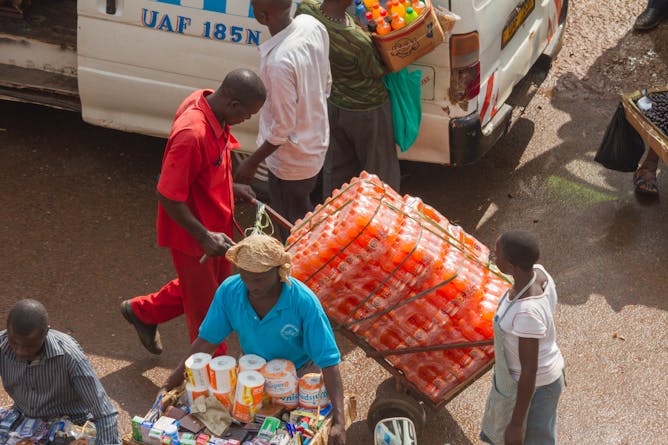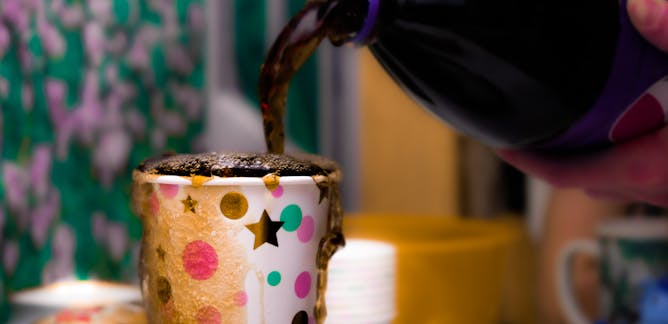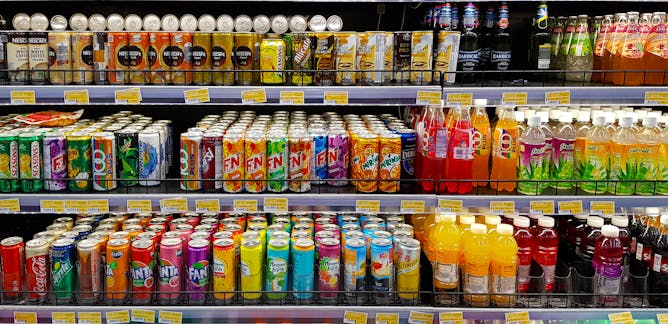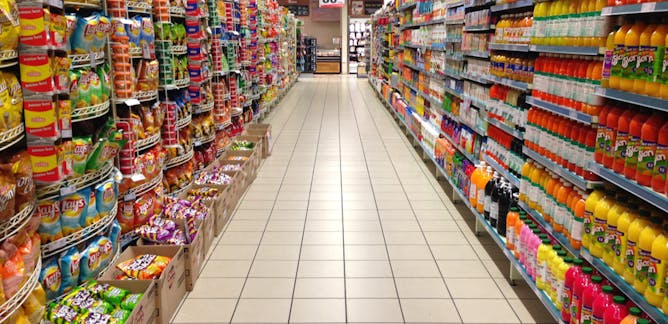|
|
|
|
African countries face a growing burden of noncommunicable diseases. Conditions such as diabetes and hypertension are expected to become the leading causes of death in sub-Saharan Africa over the next 10 years – overtaking communicable diseases such as HIV and tuberculosis.
Around the world countries are adopting policies to reduce consumption of unhealthy food, including beverages that have lots of sugar in them. The reason for this is that they have been linked to increasing rates of obesity and overweight, two of the major risk factors associated with noncommunicable diseases. As a result a host of countries have adopted policies aimed at driving down the consumption of food and drinks that have been shown to have a bad effect on health.
To understand what’s happening in east and southern Africa, a dozen researchers spent over three years looking at the opportunities for exploring such policies in seven countries in the region. Their findings have just been published.
The reasons for the ambitious multi-country study and why it matters are set out by Safura Abdool Karim, Agnes Erzse, Karen Hofman, and Susan Goldstein. Safura Abdool Karim and Karen Hofman explain how countries can go about ensuring any sugar taxes are in line with domestic laws. For their part Agnes Erzse and Karen Hofman unpack why data are key to designing effective policies.
In the case of individual countries, researchers from Botswana, Kenya, Namibia, Rwanda, Tanzania, Uganda and Zambia explored these countries’ readiness to pursue taxes on sugary drinks.
In Rwanda, Mulindabigwi Charles Ruhara looks at how the country can use its existing excise tax on soft drinks to improve public health while from Zambia, Mulenga Mary Mukanu explains how the
country has struggled to balance public health with economic policy. And finally, Milka Wanjohi and Gershim Asiki explore the barriers to the introduction of a tax on sugary drinks in Kenya.
|
Ina Skosana
Health + Medicine Editor (Africa edition)
|

|
|

The competing interests of economic growth and public health aren’t being managed well.
Shutterstock
Safura Abdool Karim, University of the Witwatersrand; Agnes Erzse, University of the Witwatersrand; Karen Hofman, University of the Witwatersrand; Susan Goldstein, University of the Witwatersrand
Implementing a sugar-sweetened beverage tax in all African countries will require sufficient political will and support from civil society.
|

Shutterstock
Safura Abdool Karim, University of the Witwatersrand; Karen Hofman, University of the Witwatersrand
Governments must take urgent action to prevent noncommunicable diseases from becoming an uncontrollable epidemic in sub-Saharan Africa. Sugar-sweetened beverage taxation offers a potential solution.
|
|
|

Mulindabigwi Charles Ruhara, University of Rwanda
Rwanda's food policies focus on production to make sure people have livelihoods and enough nutritious food. Not much attention is given to overnutrition.
| |

Agnes Erzse, University of the Witwatersrand; Karen Hofman, University of the Witwatersrand
Without reliable, local and timely data, countries will miss the potential of sugar-sweetened beverage taxation as a public health intervention.
|

Milka Wanjohi, African Population and Health Research Center; Gershim Asiki, African Population and Health Research Center
Between 2018 and 2019 Kenya registered a 30% spike in sugar production and an increase in sugar consumption.
| |

Mulenga Mary Mukanu,, University of the Western Cape
Tension between the government’s economic and public health priorities is preventing stronger fiscal measures to address nutrition-related noncommunicable diseases.
|

Karen Hofman, University of the Witwatersrand
The results are in: South Africa’s ground-breaking health promotion levy, introduced in 2018, is working.
| |

Gary Sacks, Deakin University; Eric Crosbie, University of Nevada, Reno; Melissa Mialon, Universidade de São Paulo
The food industry's tactics are designed to reduce the likelihood of the government adopting global recommendations to tackle obesity.
|
|
|
| |
Featured events
|

|
27 St Andrews Road, Parktown, Johanesburg, Gauteng, 2193, South Africa — University of the Witwatersrand
|

|
Online, Pretoria, Gauteng, 0083, South Africa — University of Pretoria
|

|
Robert Sobukwe Road, University of the Western Cape, Bellville, Cape Town, Western Cape, 7535, South Africa — University of the Western Cape
|

|
MS Teams, Western Cape, 7600, South Africa — Stellenbosch University
|
|
|
|
| |
| |
| |
Would you like to republish any of these articles?
|
|
It’s free to republish, here are the guidelines.
Contact us on africa-republish@theconversation.com in case you need assistance.
|
| |
| |
| |
| |
|
|
|
|
|
|
|